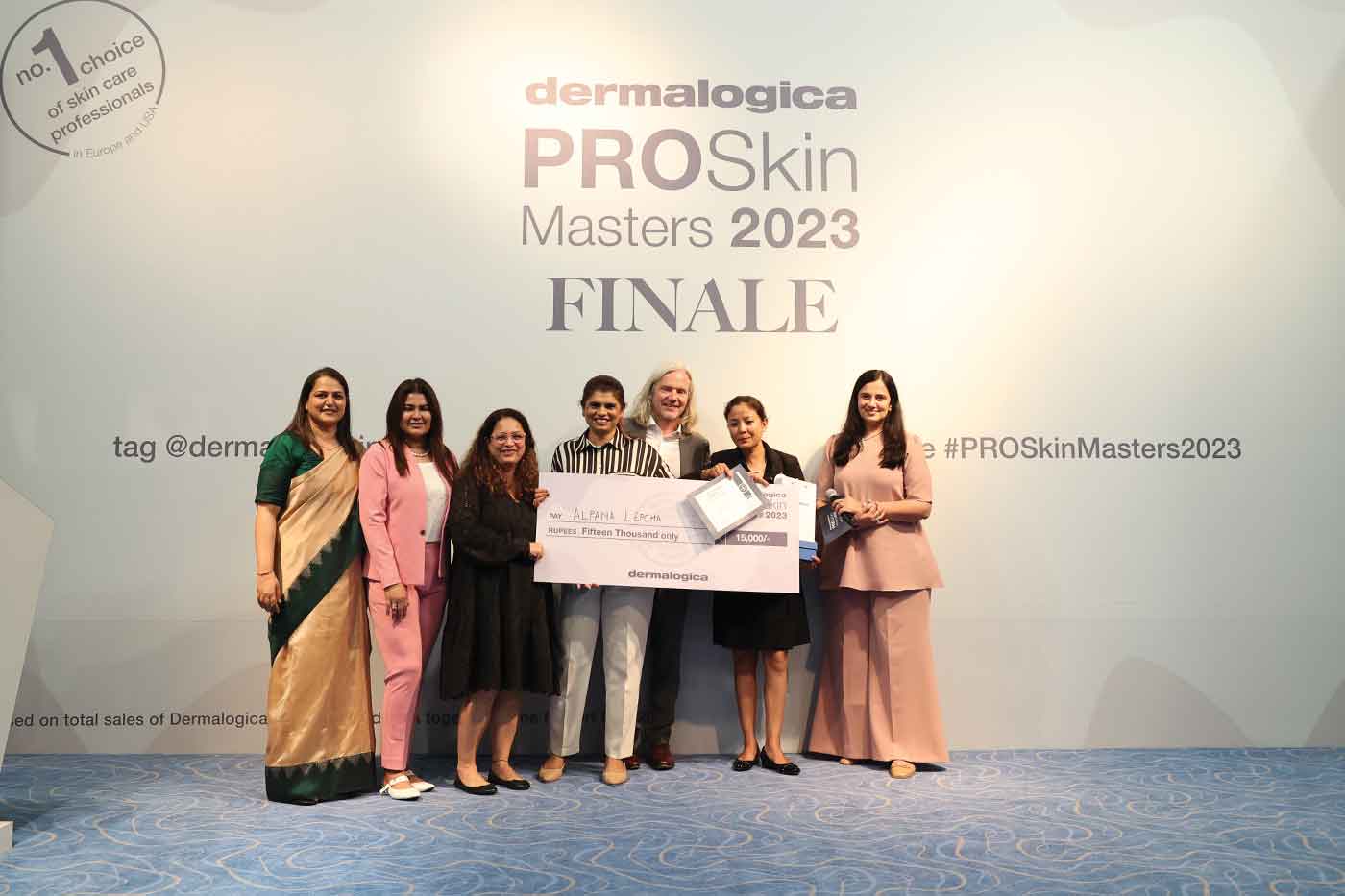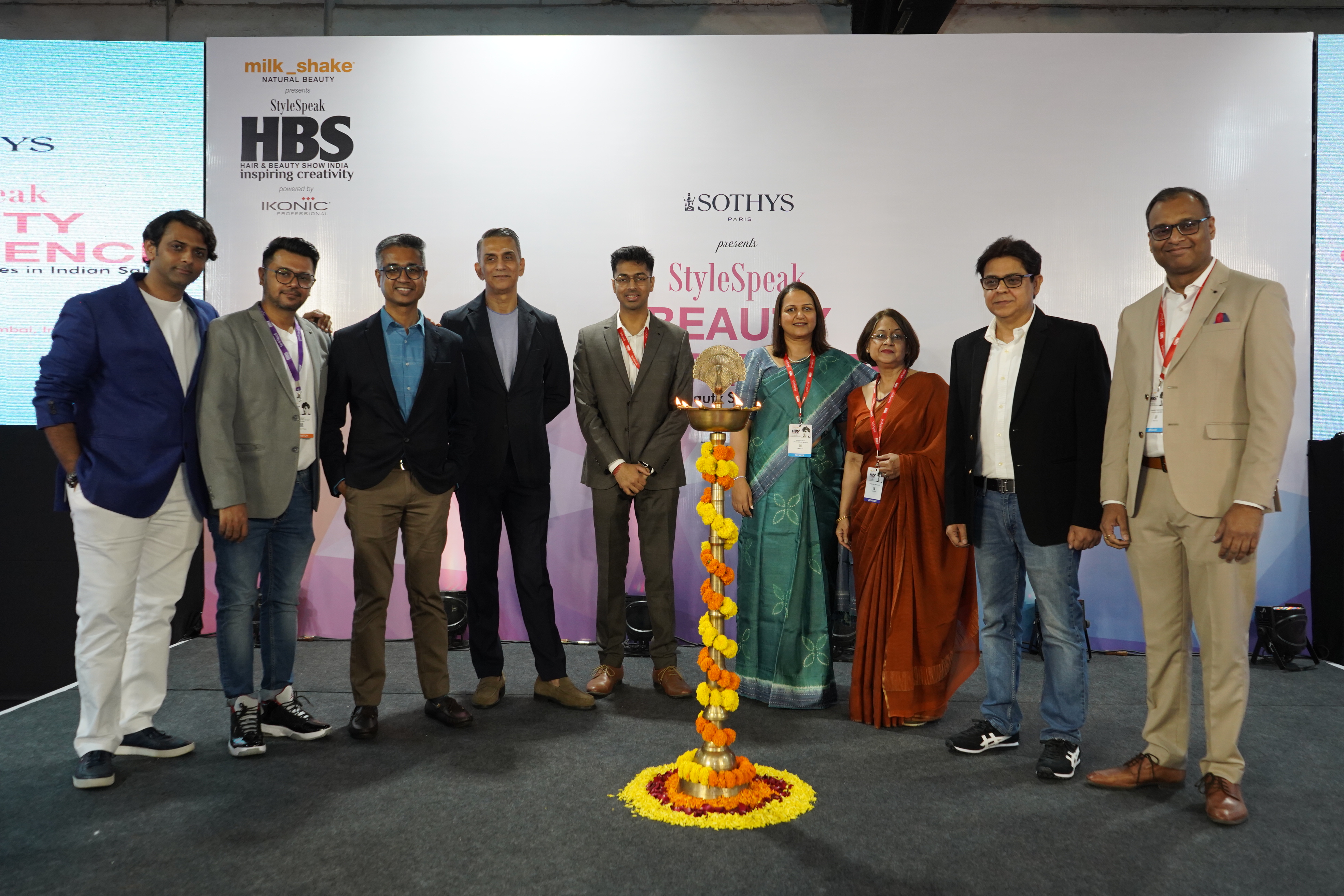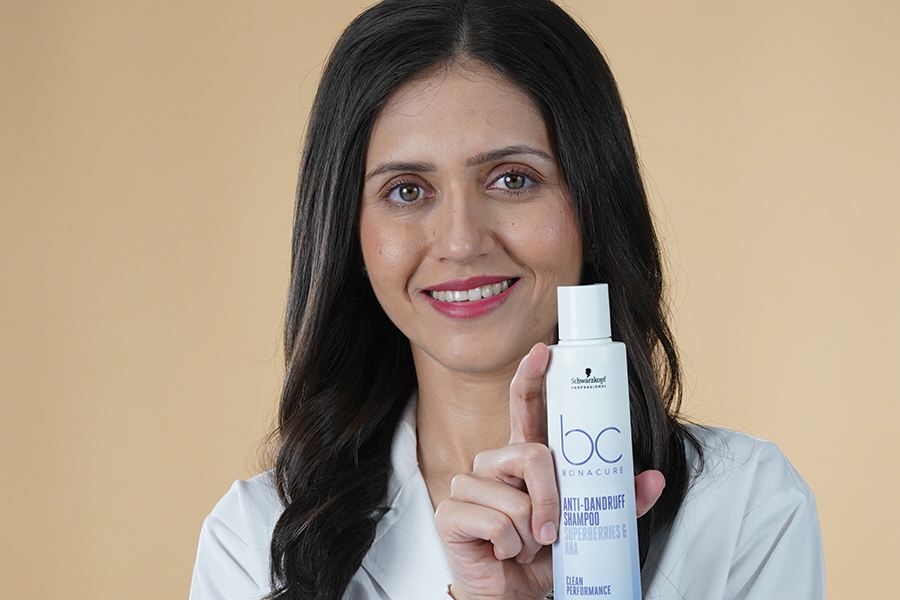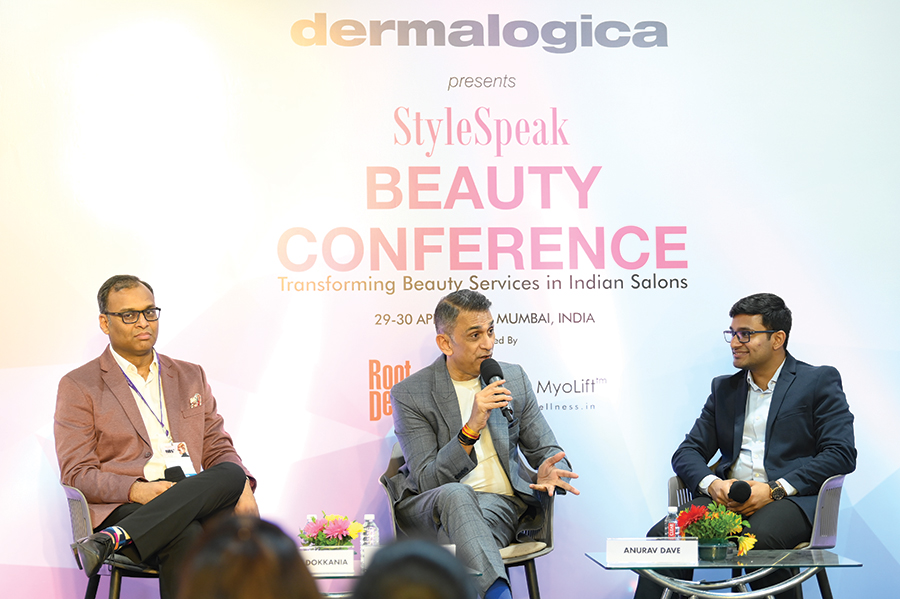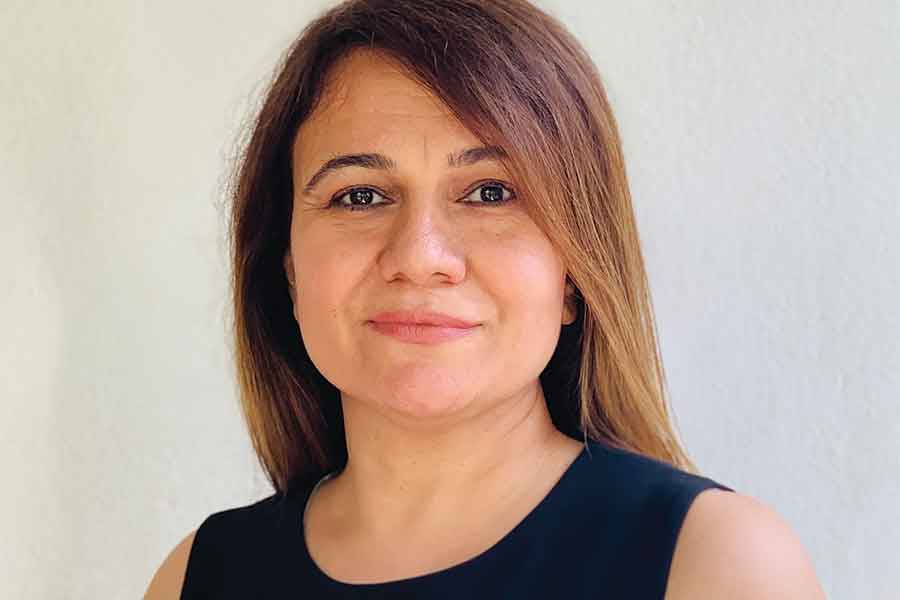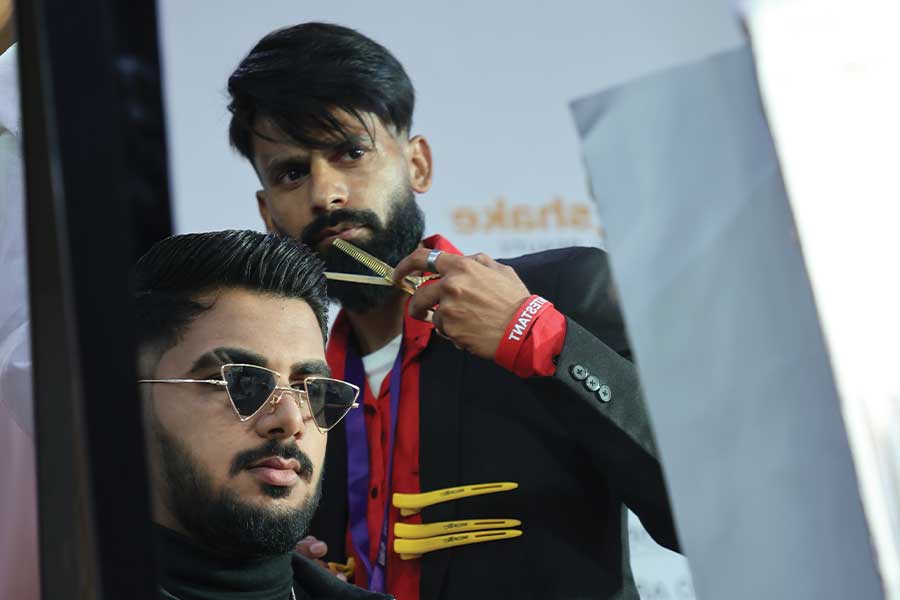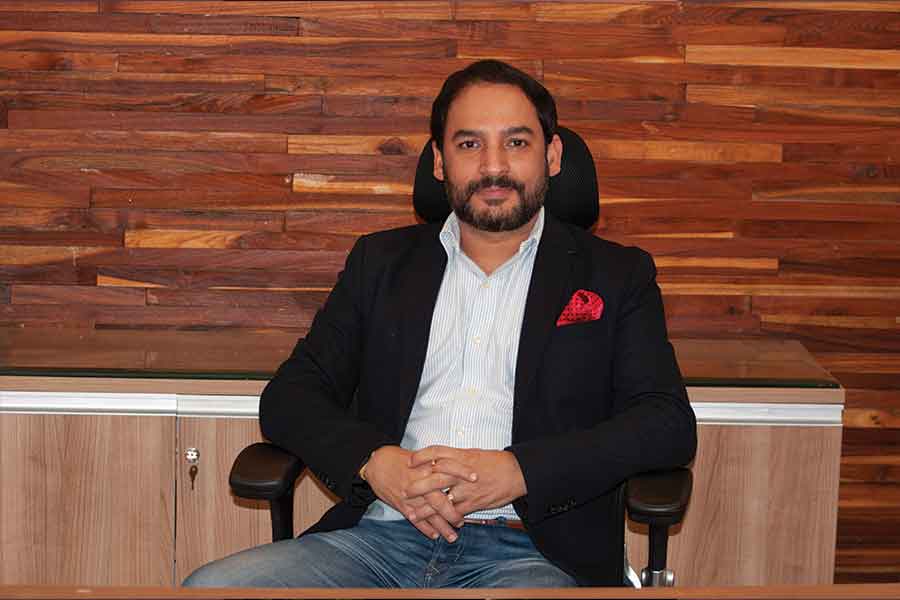Dermalogica Chief outlines current global skincare trends and how the brand equips skin therapists to meet customer expectations.
Aurelian Lis, the Global CEO of Dermalogica was on a special visit to India for attending the finale and awards ceremony of the 4th Dermalogica PROSkin Masters 2023 being held in Mumbai.
While StyleSpeak covered the exciting final round of the competition, we also had the opportunity to speak with Aurelian Lis about new developments in the skincare industry, consumer expectations and Dermalogica’s perspective.
Sandhya Chipalkatti: Your thoughts on skincare and Dermalogica?
Aurelian Lis: Over the years’ skincare has changed so much. We are in an age where everybody’s worried that they’re going to be replaced by generative AI and ChatGPT!
Well, when I get a Dermalogica skin treatment, it’s always surprising how just the touch that I get from the Dermalogica therapist adds to the level of the skin results that I can expect and the whole experience!
When we started many years ago at Dermalogica, it was about to bring respect to the industry. In many countries, that’s changed – there is quite a lot of respect for the skin results that you get; for the treatment results. While that has changed, but the industry keeps changing as well – like now you have the advanced nature of the treatments.
I was looking at StyleSpeak, you see this machine…..this more advanced service. People are becoming accustomed to expect more and more. They want long term skin health and immediate results. For us it is important that we do this because the level to which we are educating keeps going higher and we want our therapists to have wonderful careers.
“Skin health is not about only tomorrow morning. It’s a continuous process. “
What was the effect of COVID on the industry?
AL: Covid was a difficult time for the industry, obviously, because we were being told overnight that you’re not allowed to do what you do – which is touch people’s faces.
As an organization, we realized very quickly that therapists did not know how they would be able to do treatments safely. What we did was we worked with an epidemiologist. We then come up with 12 rules that you had to follow in order to do a treatment, even during COVID. We called this ‘Clean Touch’.
We planned a class. It was a half an hour, digital class. I remember launching it maybe in April. It was like six, seven weeks in, and the team had really come together to do this. One of my team members said, “Well, maybe we’ll get 2,000 people to take the class”. I joked and said, “Well, why don’t we do 10,000…. Wouldn’t that be nice?”
We launched that class, and in the next three months, we had 75,000 therapists worldwide take this class so that they could get back to work. I think for me, it was one of the most rewarding things that we maybe, stumbled into.
In mid-July a local English newspaper had on the front cover, a picture of a therapist who just opened her salon again. She was standing outside the salon holding the ‘Clean Touch Certificate’ as proof that it was safe for people to come back to her.
That, for me, was in fact essentially the epitome of what we needed to be doing.
Your thoughts about the PROSkin Masters Competition?
“I think what PROSkin Masters is about is celebrating the artistic capability of the individual. I think it’s long-lasting. I met one of the contestants at lunch, she came in from Delhi. I think what she will have learned in this contest, is going to stay with her for the rest of her life. And that’s quite a privileged position to be for a brand to be part of.
I think, as you said, when you’re in a competition, you see what other people are doing, you push yourself. I think there’s, in some ways, maybe the respect.
Do you feel that by doing this competition, you’re raising the standards of the aesthetician?
AL: Yes, because we are, in multiple ways, helping the skin therapist get exposed through training and getting better.
The therapist is also a part of the community. Now all those members of her community who know she’s here, or those who helped educate her – they’re also invested in this. They also know, this is a big deal. We have 13 finalists today…. I don’t know who wins. But the 12 who don’t win, will, I’m sure, still be extremely proud at dinner tonight with their families and with their communities. It’ll be a big deal because they made it all the way to the final.
What is happening in skincare trends around the world?
AL: Looking after ‘self’ is a big trend. The desire for ‘results’ is becoming stronger. Interest in ‘products and treatments’. These are the biggest trends that we are seeing. What came out during Covid was ‘skin health.’ Skin health is a long term thing. The challenge we face is that we have to show immediate results, which can be done, but you have to be careful to do it in the right way. Skin health is not about only tomorrow morning. It’s a continuous process.
Skin trends on social media are penetrating people’s lives. What should the consumer be listening to?
AL: Today the consumer is divided into different groups. We have APEX consumers who do extreme research and understand the difference between machines and treatments and what we do etc. But most of the consumers think that it is too much. That’s where the expert comes in. If I have age spots, I would like my skin to be even. As there are 20 ways to do that, I think you should leave it to the expert to do it.
The skin therapist has to deliver otherwise they will not survive in the long term. Companies are spending huge amounts on research.
The skin therapist has to deliver otherwise they will not survive in the long term.
Do you see a conflict between the dermatologist and aestheticians?
AL: I don’t think there should be a fear. Having said that, I feel the skin therapists need to be advanced, otherwise you will lose your customers. Doctors have lot of technology like laser, LED etc., but that’s not going to be a healthy business unless you bring touch to the experiences.
The competitive part keeps us on our toes. Education, training and being up-to-date is the key.


